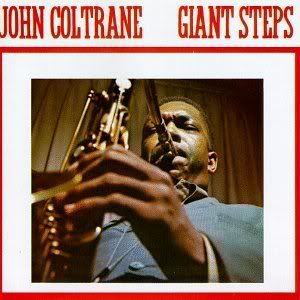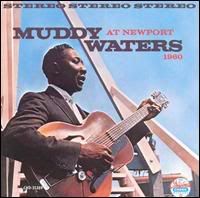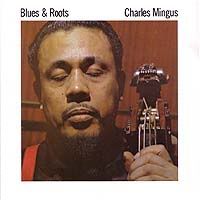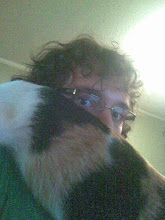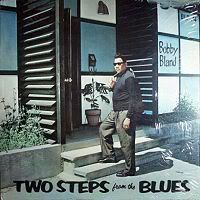
Bobby Bland - Two Steps from the Blues
Year Rank: 1
Overall Rank: 420
Bobby Bland must have read the How Stuff Works article on the blues. Each song on this album sounds exactly like the blues, but inauthentic. The lyrics all sound like somebody took a fishbowl, filled it with sad couplets, pulled them out randomly and set them all to music. The melodies are very predictable - standard progressions, standard beats - it's all very standard. If Bobby Bland couldn't sing, this record would be utterly unlistenable.
The album's not bad - it's just not good. Certainly not the best record of 1961. To paraphrase my wife's review of a Smiths mix tape once given to her by a guy who used to work for the Simpsons, each song sounds exactly the same, if in fact there are separate songs on this album and not just one long boring mess. Oh also, I hate the Smiths.
Yeah it's acclaimed, but is it good?
Not really? There are a couple of good songs, but they all sound like each other so it's tough to tell. I suppose the best way to listen to this album is by taking all of the individual songs, putting them on your iPod, and then putting the whole business on shuffle so you can hear one track at a time, interspersed between songs that don't sound as similar. As an album though, it sucks.
Worth listening to for: “Two Steps from the Blues” and “St. James Infirmary”
Overall grade: D+. I never need to listen to this album again, and you probably don't need to listen to it in the first place. Avoid.
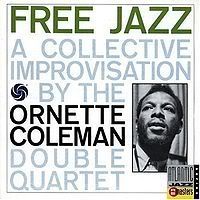
Ornette Coleman - Free Jazz
Year Rank: 5
Overall Rank: 537
Before listening to this album I hoped the “free” in “Free Jazz” meant “gratis.” Turns out it means “awful.” So the way this album was recorded is Ornette Coleman and Eric Dolphy got together one day with a bunch of other musicians. I imagine it was like a game of pick-up basketball, where each dude got to draft his own band from a line of six or seven guys. They made teams of four, sat down in a studio and jazzed at each other for 37 straight minutes. No breaks. One band in the left speaker, one in the right.
I'm sure that the people responsible for this album had an awesome time recording it. It must have been incredibly impressive to watch, and loads of fun to play. To listen to the album, however, requires a herculean effort. To call my listening experience a chore would be an insult to doing the dishes (RICK REILLY JOKE). In the 37 minutes of alleged music, some really cool stuff does happen. When the two bands sync up, it's incredible. This happens five or six times throughout the album, and lasts for about 50 seconds each time. It's not worth slogging through the cacophonous tangle of sonic pubic hair just for that, though. This album, in a word, blows ass.
Yeah it's acclaimed, but is it good?
There's a story about the Parisian debut of Stravinsky's The Rite of Spring. When the audience was first subjected to the ballet, there were riots. Things were quite literally set on fire. Their small French minds couldn't wrap themselves around the very difficult piece that Stravinsky had put together. A year later, the ballet returned to France, and was met with rave reviews. The lesson? French people are stupid. (PS I like Igor Stravinsky, but I prefer Petroushka to The Rite of Spring. Also, I'm a snob and a prick.)
Does this mean that in a year, I'll relisten to this album in the hopes that my brain has matured to the point that I'll enjoy this album? No. No no no. Not even a little. It's an amazing accomplishment. It's technically quite impressive. I never want to listen to this again.
Worth listening to for: Uhhhhh...
Overall grade: F. This is as bad as Scrappy Doo.
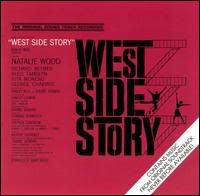
West Side Story - Original Film Soundtrack
Year Rank: 14
Overall Rank: 1504
Let me tell you, I've never been so excited to listen to “Cool” in my entire life. After 40 minutes of boring and 40 minutes of screeching madness, West Side Story felt like the scene in Shawshank when the guy gets out of the sewers. I hadn't seen the film version in about 12 years, and I hadn't listened to any of the music in about ten, so I had forgotten exactly how spectacular this record is. It's touching, it's funny, it's intelligent. With the exception of Marni Nixon's insane-o over the top fakey Puerto Rican accent, this really is a perfect musical experience.
The only problem I really have is that it's a lot tougher to write a positive review than a negative one. I guess I can complain about how much “Cool” sucks, and I could make hack jokes about how gay it is to be in a gang that sings and dances, but where's the fun in that?
Yeah it's acclaimed, but is it good?
Yes. I think I just made that abundantly clear. I should have thought the format of this blog out better before I committed to it. Sheesh.
Worth listening to for: “America” and “Quintet”
Overall grade: A+. Possibly the greatest film musical ever made. All praise is due to the Bernstein/Sondheim combo for rhyming “Puerto Rican” with “chicken.”
